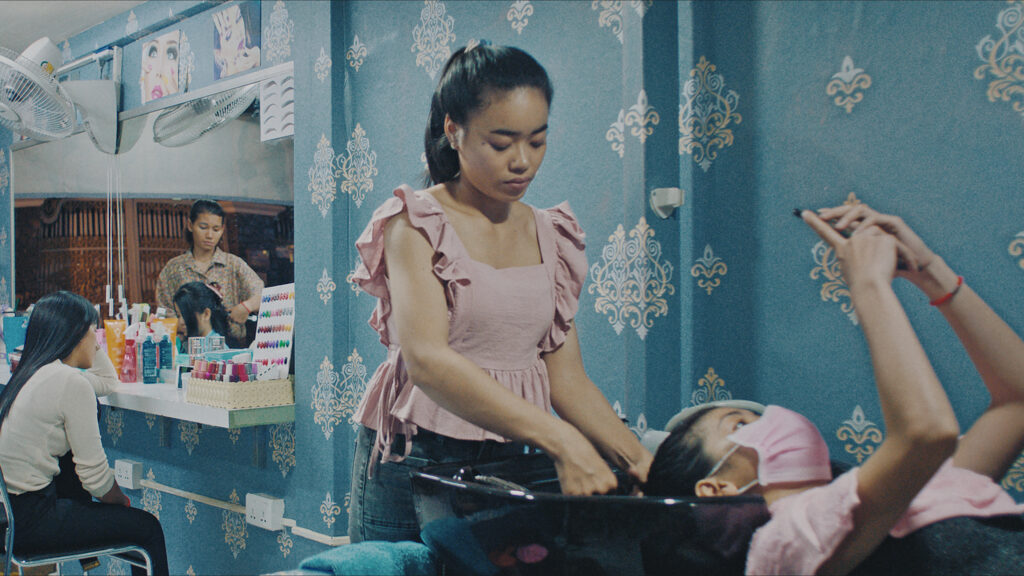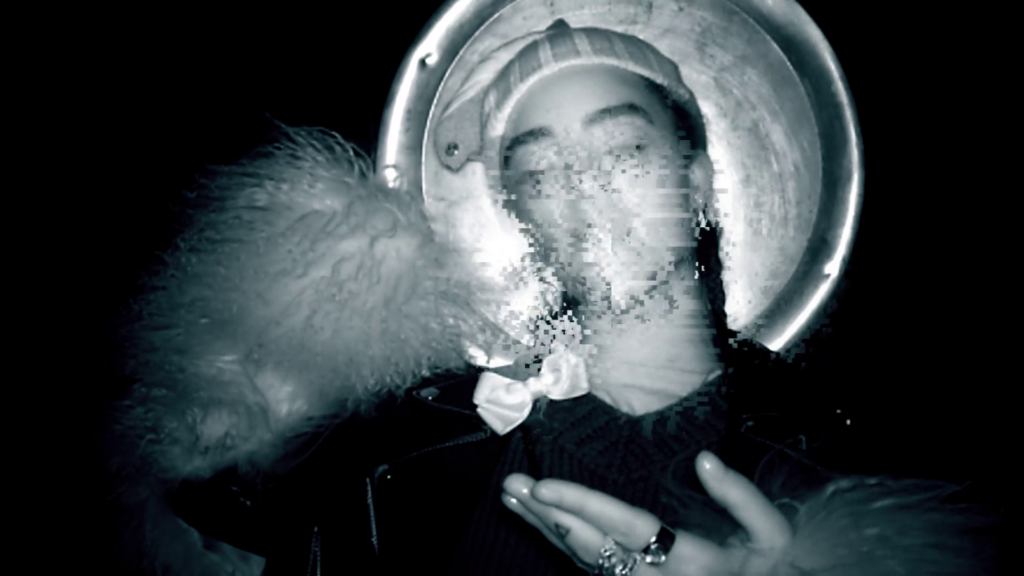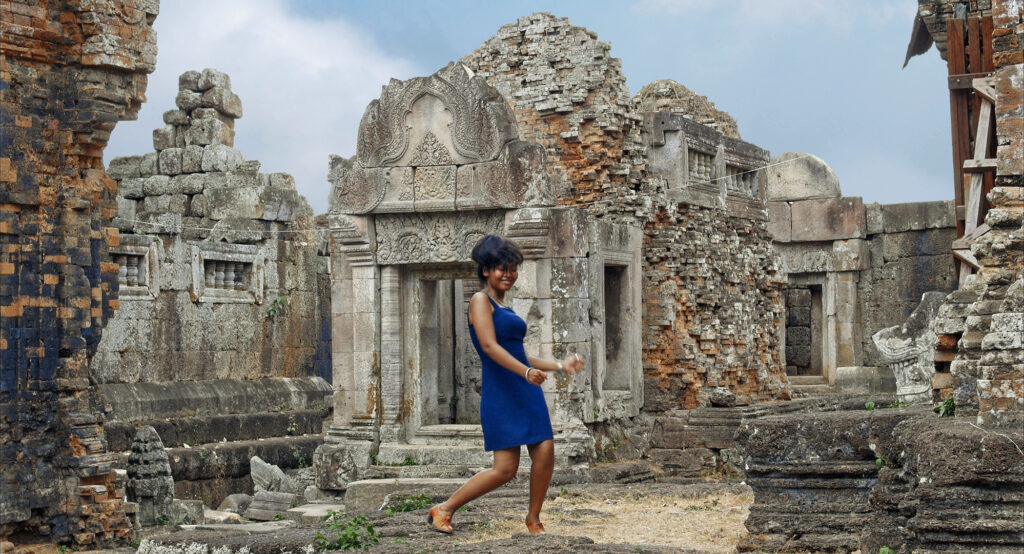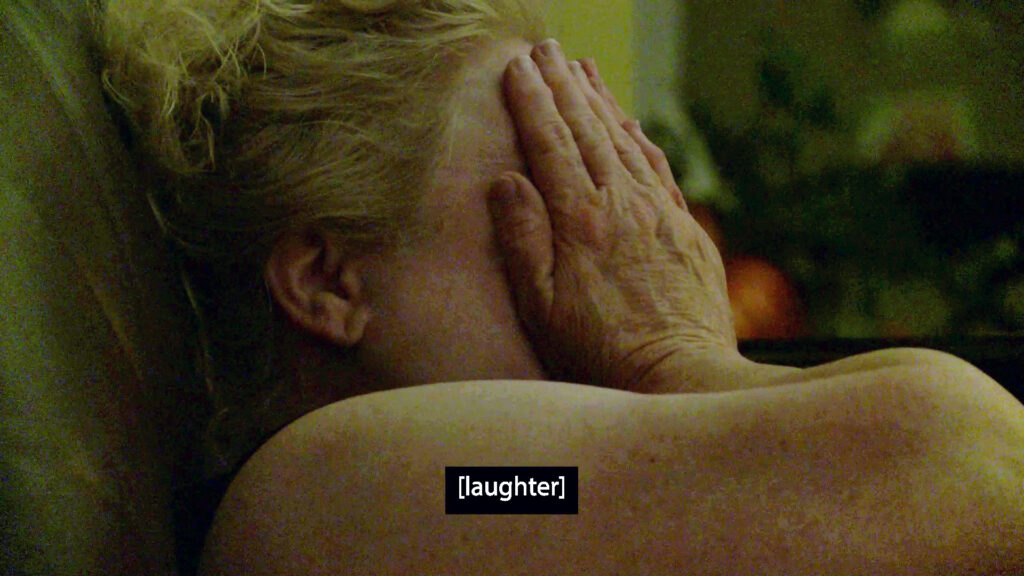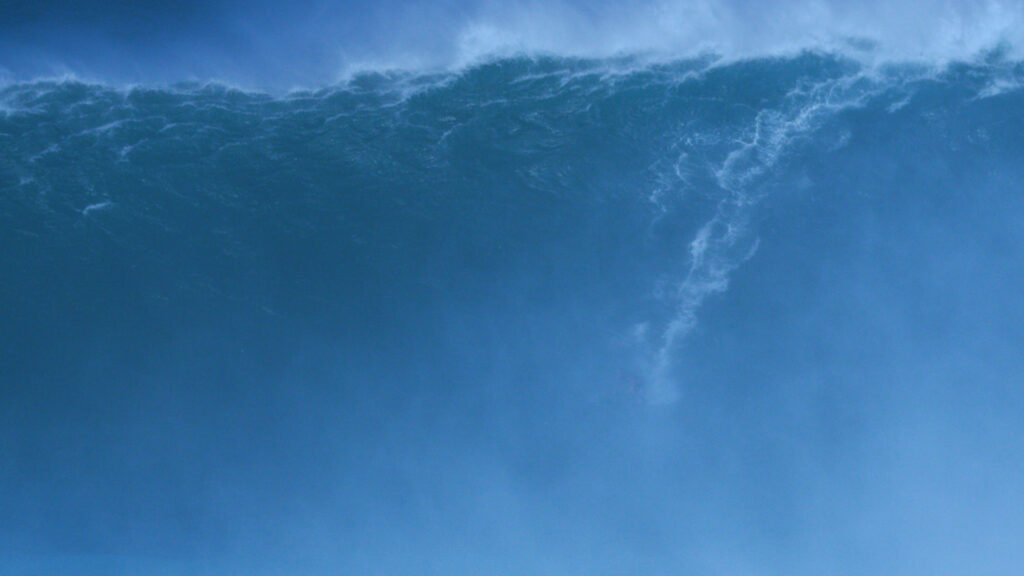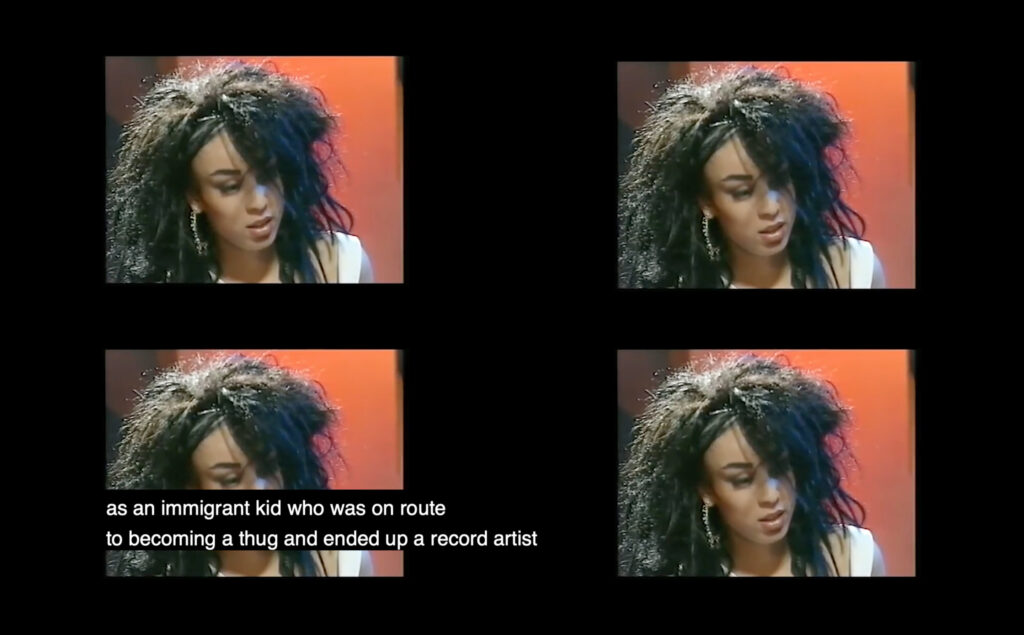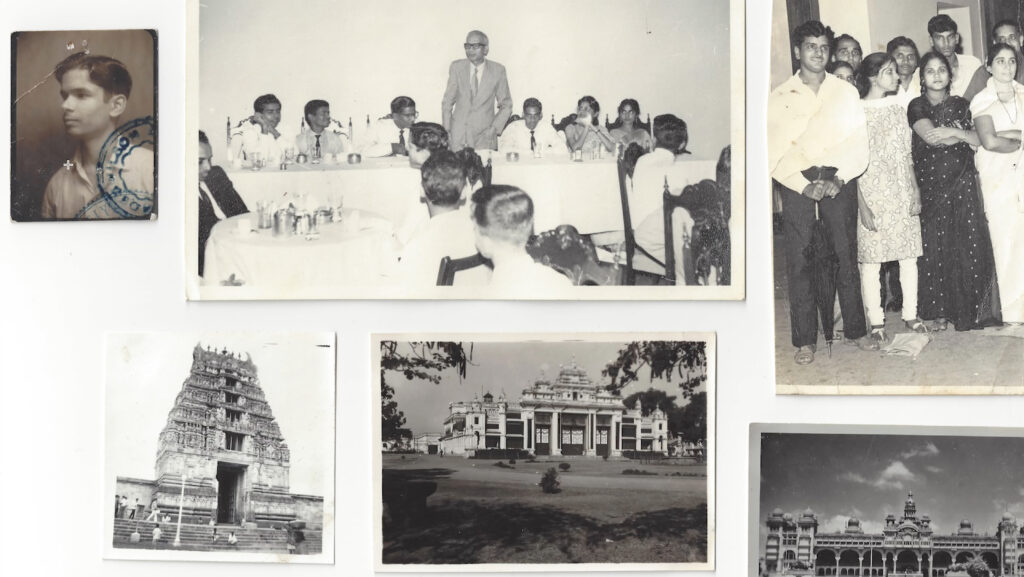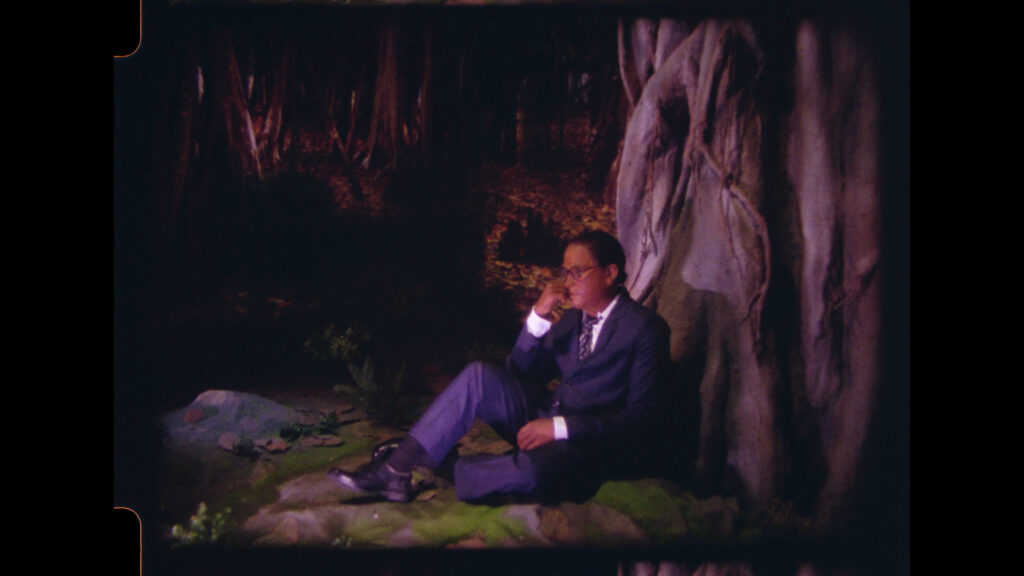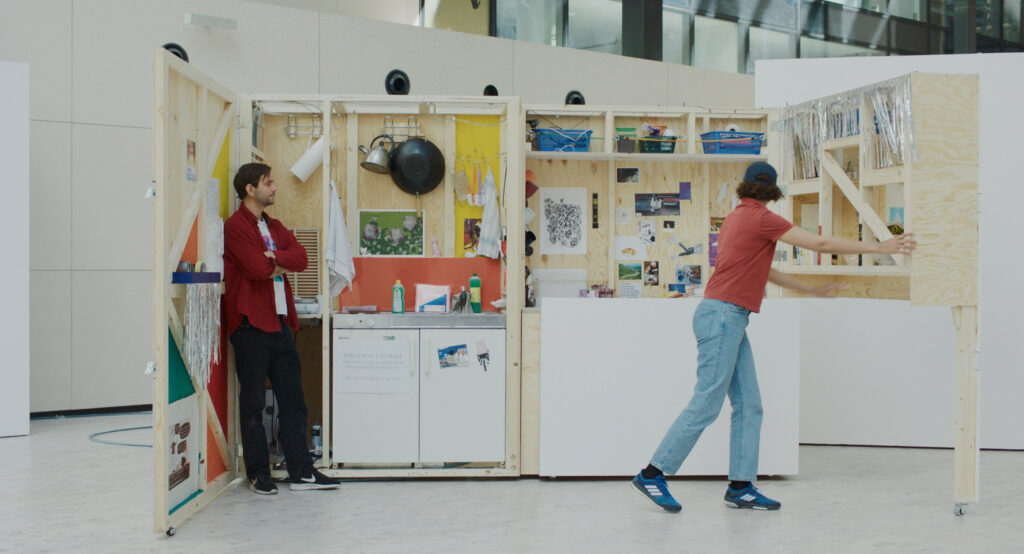Through an expertly pitched blend of realistic fiction, Sunrise in My Mind shows a view of a beauty salon in Phnom Penh at night which sparkles like a jewel box. The patterned aquamarine wallpaper plays off of the many pink objects inside, including the shirt of the film’s protagonist Pich, a beautician whose mind is clearly elsewhere. Against the strains of a soul song from the early 1970s by Pan Ron, the co-workers’ conversation moves toward the guy who has a crush on Pich, to which she acts demure and with indifference (but also with a private smile to herself). But Lay, a deliveryman who rides a motorbike through the city at night, reliably shows up to the salon. After asking Pich to wash his hair, we witness a moment of intimacy, though it’s unclear whether this is real or imagined.
Programmes
Through Arabic poetry, collective history and what artist Sophia Al-Maria calls “an assemblage of exquisite cadaver moments”, Tender Point Ruin traverses the gifts, the vulnerabilities and the detritus of art-making.
Turn Left, Turn Right is a narrative feature following Kanitha (played by artist/filmmaker Kanitha Tith), a free-spirited young woman in Phnom Penh who doesn’t conform to society’s (and her mother’s) expectations. Easily prone to daydreams, Kanitha floats by working at a rock club and at a hotel, riding her motorbike across the city and generally being restless, unsettled and at times self-sabotaging. But this lifestyle is increasingly out of step not only with her mother’s demands, but also with her father’s deteriorating health. When she needs to step in and care for him, engaging with dreams might provide a potential solution to his suffering.
Rock Bottom Riser is an immersive, exploratory and deeply inquisitive study of an island world at sea. The film fashions a layered and heterogeneous portrait of Hawaii through its cosmogony, its uncertain future and the scattered lens of the present. Through a combination of research, observation of the islands’ landscape and conversation with many different people who call it home, artist-filmmaker Fern Silva highlights the complexity and contradictions of a place which can be understood as beautiful and serene but also under constant existential threat.
In Passion of Remembrance, Salad Hilowle creates a personal and evocative meditation on Black Swedish identity. Collage-like, Hilowle interlaces archive footage taken from 90s Swedish television with contemporary scenes filmed in rural and urban settings. The result is a dynamic and multi-layered work that interrogates, re-frames and reclaims blackness in Swedish culture.
This screening will be accompanied with an in person conversation with Camara Taylor (suspiration!) and will take place at The Maltings in Berwick-upon-Tweed.
Manifesto establishes a multifaceted portrait of an arts academy which has been recently subsumed into a large national university. Through frank and revealing discussions with students, teachers, administrators and other staff, Ane Hjort Guttu establishes links between seemingly disparate topics—from architecture and surveillance to neoliberalism and dysfunctionality—embedded within the framework of contemporary academia.
In Maat means Land, Fox Maxy (Ipai Kumeyaay and Payómkawichum) has created an intoxicating and urgent film collage that gives invigorating expression to contemporary Indigenous identity, culture and experience. Exploring the question, “what does it mean to come from somewhere?”, Maxy pays homage to the land and his surroundings, whilst challenging us to think about the painful and multi-layered histories that exist within territories scarred by settler colonialism.


